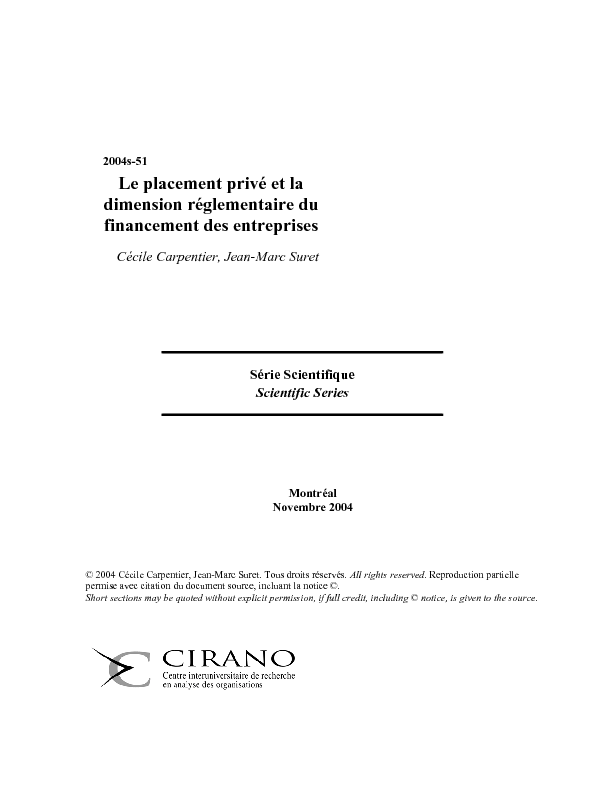Le placement privé et la dimension réglementaire du financement des entreprises
Acknowledging that securities regulation penalizes small growing firms in their attempt to raise equity capital, most of the Canadian provinces have recently reformed their exemption rules. These rules allow the issuance of securities outside the boundaries of securities regulation. The rules governing the resale of securities issued within the exemption system have been eased considerably. In part because this task is fairly complex, securities regulations are not yet harmonized across the provinces. The first objective of this paper is to present to non-specialists of securities regulation the broad outlines and the challenges of this liberalization. Non-conventional financing, such as accessing the stock market via capital pool companies or private placements in public equities, along with reverse takeovers, are becoming more common than non-exempted issues. This trend in business financing, together with the growing liberalization, is taking shape in a context of reinforcement of regulation and control of disclosure and governance for public companies that follow financial scandals. The co-occurrence of these events raises important questions that have received little attention to date, and implies serious risks that remain unexplored. Analysis of these risks is the second objective of this study. In particular, we assess the risks inherent in the decrease in market liquidity and in market quality. As some American works assert that private equity development may engender significant risks for investors, public policy makers should put in place efficient mechanisms to monitor these transactions and issuers in the new regulatory context.
[ - ]




